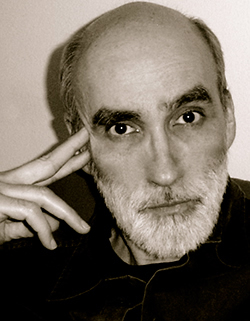|
My new book, Mentor: A Memoir, grew out of an essay I was supposed to write about Frank Conroy's work. But, without realizing what I was doing, I immediately established a contrast between my father, who left school after the eighth grade and didn't read or write books, and Frank Conroy, who did and, over time, became my literary mentor. I'd never planned to write a memoir. Its genesis was sheer chance.
Although Mentor began as a tribute to and a partial biography of Frank Conroy, by focusing on Frank and my friendship with him I found that I was able to write about aspects of my life more objectively than I otherwise might have. I always referred to what I was writing as "the Frank book." He was its subject, yet I kept appearing. And when I read the book's first draft, I thought, Why am I in Frank's story? Shortly afterward, my friend, the writer Charles D'Ambrosio, read it and said to me, "This is your story. Frank's now just a part of it." Only then did I realize that Frank was the lens through which I saw myself. Prior to this, I'd concentrated on composing chiseled sentences that could be read swiftly to create the illusion of time passing quickly. I hoped that the combination of this prose style and rapid changes of scene, tone, and mood would eradicate any potentially self-indulgent impulses, and create an emotional force greater than the sum of the memoir's seemingly disparate parts. But I only can articulate this in retrospect. While I worked on the book, I focused exclusively on the truth of what the narrator said. I also learned that when you write a memoir, the narrator is not "you." It's a persona known as you, and this distinction is important.
I've written five novels, but writing a memoir is a completely different experience. In one sense, a memoir is easier to write than a novel, given that all the material—your life—is there, waiting for you to recall it, rather than, as with a novel, to generate it. But the difficulty in writing a memoir is deciding what aspects of your life are worth investigating, and then finding the story contained in the random events of your past. Readers are not moved by incidents alone; they are moved by the meaning of the incidents that have changed the way you understand your life in a way that you previously hadn't.
Writers speak of universality in fiction. To me, a good memoir also taps into a universal emotion, not on purpose, but by the memoirist's act of observing him or herself as a stranger. Now that my book's finished, I often forget events in my memoir because, essentially, I was estranged from myself while I wrote it. Again, this is completely different from my experience as a novelist. When I finish a novel, I'm lonely because I miss my characters. But when I finished my memoir, I felt as if my life had been lived by someone else.
Had I consciously set out to write a book about my friendship with Frank Conroy, and my development as a writer, I likely would have produced something diligent but lifeless. Instead, by capitalizing on the opportunity presented to me by sheer chance, I examined myself with an honesty that I hadn't believed was possible. Consequently, I produced a continually surprising book that, in the end, not only taught me who I was, but who I am. So, if you attempt to write a memoir, keep in mind that what you know about yourself is less important than what you don't know about yourself, because the mystery of who you are is, ultimately, the story you have to tell.
|


